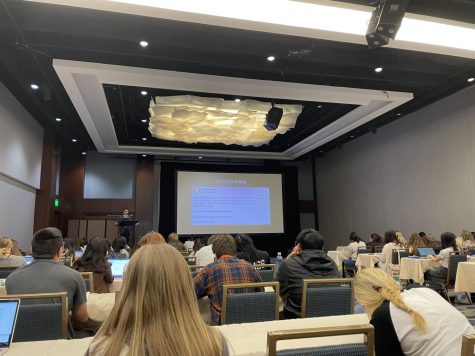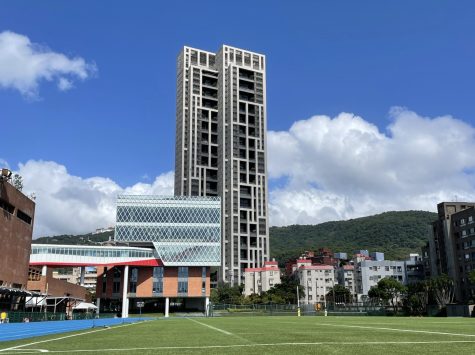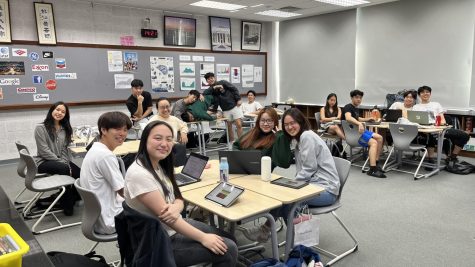Uncovering Harvard professor’s distorted narrative of Comfort Women
A Harvard University professor who falsely argued in his recent paper that Korean “comfort women” were voluntary prostitutes, not sex slaves exploited by the Imperial Japanese Army, has incited international controversy and outrage.
Mitsubishi Professor of Japanese Legal Studies J. Mark Ramseyer’s paper, “Contracting for Sex in the Pacific War,” will be published in the March issue of the International Review of Law and Economics. However, its early feature in a press release in January and his former opinion article in the Sankei Shimbun — a conservative Japanese newspaper — arguing that the comfort-women-sex-slave story is “pure fiction” were immediately met by widespread criticism worldwide, especially in the Harvard community and Korea.
Who were “Comfort Women”?
“Comfort women” euphamizes women coerced into sexual slavery by the Imperial Japan government to provide sexual services to the army troops before and during World War II. At least 200,000 women are known to be involved, of which the majority were from Korea, in addition to a small number of women from China, Taiwan and other Asian countries.
The Japanese military administered a massive human trafficking scheme chiefly through kidnapping and attracting young girls with feigned employment promises. They were subsequently placed in brothels called “comfort stations,” designed to relieve Japanese soldiers of their distress. In them, women lived in a state of perpetual fear of endless rapes, violence and even murder, in the case of resistance.
After the end of the war, women who survived commonly suffered physical and psychological illnesses, as well as marginalization from the Japanese, let alone from their families and communities.
Despite the ongoing fight for a formal apology and recompensation by South Korea’s government and women’s and human rights organizations, the Japanese government has denied any legal responsibility for the maintenance of the comfort women system to this day.
With only 15 survivors still alive, South Korea and international supporters are strengthening their efforts with urgency to receive the rightful restitution while their voices can still be directly heard.
There is no doubt that comfort women still remains a sensitive topic in both Japan and Korea; that Ramseyer’s recent statements provoked a furious response among the South Korean — and international — community is expected.
The Paper’s Flaws and Illegitimacy
The misleading narrative Ramseyer builds portrays comfort women as prostitutes who willingly negotiated contractual relationships with brothel owners, who were unassociated with the Japanese government. They supposedly had the freedom to compromise on the length of their terms and wages.
Here, more than one aspect of his logic is critically flawed.
While he claims that the brothel operators were unaffiliated with the Japanese government, Japanese government documents prove that the military confidentially appointed officers to operate comfort stations.
Teenage girls — as young as 8 — were defrauded into sexual slavery through false promises of high education or safe employment that could help relieve their family debts. Though, most girls were violently taken from their families against their will.
Moreover, scholars have pointed out that his arguments are not supported by any signed contracts with Korean women. “There were no contracts involving Korean women at wartime comfort stations cited, nor secondary sources detailing those contracts, nor even any third-party accounts that confirm the relevant terms,” according to another Harvard historian invited to write a response to Ramseyer’s paper.
His credibility is further put into question as he omits any reference to reports from decades of scholarly research by both Korean and international organizations, such as the United Nations, which unanimously discern that comfort women were “military sexual slaves” who were “treated with violence and savagery.”
While it is standard practice for respectable scholars to recognize possible biases and to refer to diverse sources, Ramseyer utterly disregards factual scholarly evidence recognized universally, not to mention the plethora of testimonies from both dead and surviving victims he overlooks.
He justified this omission by stating that he is “very upfront” about his inability to read Korean when asked by The Harvard Crimson. This very exclusion of factual evidence makes possible Ramseyer’s erasure of war crimes entailing human rights violations.
International Outcry Stoked by Ramseyer
Ramseyer’s attempt to obscure a critical piece of history under the neo-Japanese motif has been responded with active retaliation from various groups of scholars and South Koreans.
Many have written open letters and petitions, which have garnered at least a total of 10,000 signatures.
The Korean Association of Harvard Law School published a statement early February denouncing his paper as “factually inaccurate and misleading.” The Korean International Student Association at Harvard has also demanded an apology from Ramseyer.
A transnational group of historians, alarmed by the degree of “distortion, misrepresentation, misdirection, and omission of historical sources”, demanded retraction of Ramseyer’s paper for academic misconduct, reasoning that he misrepresented his sources, whose accurate portrayal would cause “the argument [to] collapse.”
Likewise, UCLA professor Chwe’s letter condemned Ramseyer for “using economics—more specifically game theory and law and economics—as a cover to legitimize horrific atrocities.” and demanded the paper’s retraction. It has been signed by more than 2,000 prominent economists and journal editors worldwide as of late February.
In South Korea, Ramseyer’s paper made headlines across the nation’s media and was met with widespread public anger after its press release in Sankei Shimbun.
Many Korean media outlets and scholars suspect a sponsorship by the Japanese corporation Mitsubishi Group, which donated $1.5 million to Harvard to endow his professorship in the 1970s. Others suspect that his connection with the Japanese government influenced his work. He received the Order of the Rising Sun award, a Japanese government distinction for those who promote Japanese culture abroad, in 2018.
Even Japanese scholars’ societies and civic groups like Fight for Justice have organized seminars concerning Ramseyer’s historical distortion to demand a formal apology from him.
As a response to the continued public fury, the The International Review of Law and Economics editorial team issued an emergency “Expression of Concern” in mid-February, explaining that “concerns have been raised regarding the historical evidence.” The print publication is currently delayed temporarily so these concerns can be investigated and critical comments can be published alongside the paper to give readers a comprehensive perspective.
Remseyer’s paper aligns with the age-old, continuous efforts of the conservative Japanese to unjustly deny the suffering of these women. Through his defective works, he has committed a disservice to not only the few surviving comfort women today — many of whom are still waiting for justice — but to the South Korean society, where the discussion of the sex slavery system has only recently been instigated after the decades-long stigmatization of the topic of prostitution.

Lana is the editor-in-chief of the Blue and Gold. She loves to indulge in books and romcoms. She also enjoys hiking and running outdoors. Economic inequality...

![TAS upperclassmen volunteers helped
guide guests at the fair. Volunteers were
also involved in the set-up and clean-up
processes. [VICTORIA HSU/THE BLUE & GOLD]](https://blueandgoldonline.org/wp-content/uploads/2023/12/DSC05845-600x399.jpeg)
![The film team poses for a group photo in Central Park. [ERIN WU/THE BLUE AND GOLD]](https://blueandgoldonline.org/wp-content/uploads/2023/12/film_5782-600x450.jpeg)

![The last prom was held in 2020. [PHOTO COURTESY OF ELAINE H. (‘21)]](https://blueandgoldonline.org/wp-content/uploads/2023/05/prom.jpg)
![Students watched their classmates graduate in 2022. [PHOTO COURTESY OF TAS COMMUNICATIONS]](https://blueandgoldonline.org/wp-content/uploads/2023/05/grad-475x316.png)


![Students, faculty, staff and families were all invited to the Taipei Children’s Amusement Park on Halloween Fun Night. [PHOTO COURTESY OF PTA MEDIA]](https://blueandgoldonline.org/wp-content/uploads/2022/12/Screen-Shot-2022-12-02-at-8.18.04-AM-475x315.png)
![The last Frolic was hosted at the Taipei Marriot Hotel in 2019 with “Versailles” as the theme. [PHOTO COURTESY OF MR. DUSTIN RHOADES]](https://blueandgoldonline.org/wp-content/uploads/2022/12/DSC09471-475x181.jpg)
![Updates to TASs COVID-19 policies are ever changing. The most up-to-date protocols can be found on the TAS website, as updated by TAS Communications. [PHOTO COURTESY OF UNSPLASH]](https://blueandgoldonline.org/wp-content/uploads/2022/12/waldemar-brandt-vJsTHrqMm94-unsplash-475x317.jpg)